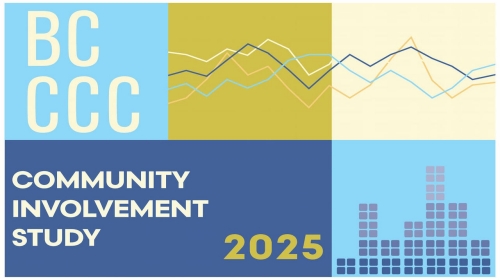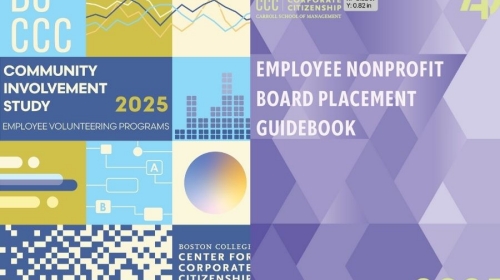WEBINAR: This webinar explores how to measure and communicate your organization's social impact with proven frameworks and strategies that matter to stakeholders.
Community Involvement: New research on corporate response to unprecedented disruption

It has been more than one year since the COVID-19 pandemic began—and what a year it has been. Reflecting on the events of 2020, I am struck that it was the business community that often initiated response to the pandemic and demonstrations for racial justice. Companies mobilized their unique resources and capabilities—from rapid relief in delivering personal protective equipment, ramping up leave and hazard pay policies, and providing for adequate physical distancing for pandemic response; to revising policies and community investments to be more inclusive and equitable, offering bias awareness trainings, and making investments that support the achievement of equity for people of color.
Through all this disruption, the Boston College Center for Corporate Citizenship was conducting our biannual Community Involvement Survey. In reviewing the results, we saw that corporate citizenship professionals were adapting to maximize impact as the world shifted under their feet. We simply could not keep this information to ourselves. So, we are sharing Community Involvement 2021: Crisis Response Preliminary Results with our members in advance of the full study due this summer. We hope you will make use of these findings to assess the work done already, benchmark your own efforts, and chart the course forward in your community involvement initiatives.
In this year marked by disruption, we have an opportunity to transform. Corporate citizenship professionals especially have an essential part to play in elevating discussions of our social safety net in general and equity and inclusion in particular. Together, we CAN create the world in which we want to conduct business AND the world in which we want to live.
What’s inside the report:
- How companies responded during disruptions
- Employee volunteering, workplace giving, and employee assistance program data
- Trends in grantmaking
Related Content
RESEARCH BRIEF - Researchers investigated how ESG activities help or hurt financial performance, using nine years of data from over 1,200 global companies.
RESEARCH BRIEF - Researchers analyzed 4 US energy exchange-traded funds (ETFs) over 15 years, including 2 dirty energy funds tracking fossil fuel companies and 2 clean energy funds tracking renewable energy companies.
RESEARCH BRIEF - Researchers conducted a survey, which measured perceptions of CSR and ethical leadership within the manufacturing and service industries.
WEBINAR: This webinar explores how corporate giving will be reshaped by the One Big Beautiful Bill. Hear directly from corporate citizenship leaders as they share innovative, real-world strategies that deliver impact for communities and results for business.
This study explores shifting trends in employee volunteering, corporate giving, and other means of corporate community involvement.
This guidebook offers insights on placing employees in nonprofit board service roles.
This study explores shifting trends in employee volunteering, corporate giving, and other means of corporate community involvement.








